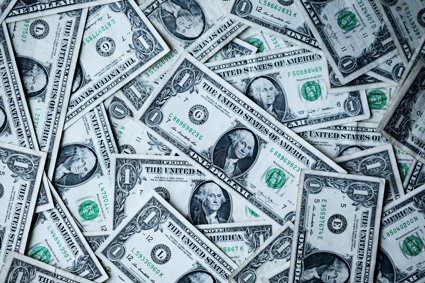
Is it ok for the rich to keep getting richer?
This lesson looks at how global inequalities of wealth are getting worse, and explores ways in which the trickle-down of wealth can occur and considers increased charitable giving by extremely wealthy people as solution to closing the wealth gap
The main focus here is to think about whether there is a moral and ethical imperative for the very rich to give more of their money away. Or whether economic processes take care of this any way – through what economists call the “trickle-down of wealth”. Maybe people benefit in all sorts of ways just through having a billionaire living in their neighbourhood?
This lesson – appearing just over half-way through the module – brings citizenship themes to the fore and it is important that students get to discuss and debate the issues. These activities help pupils think about disparities in wealth and development by considering the role and influence of billionaires. Pupils will consider whether billionaires are a positive or negative influence on the world and the poor. Students should decide which side of the fence they want to sit on and should debate the issue.
Key questions
Do the rich get richer while the poor get poorer?
Can uneven development be addressed by trickle down of wealth or tackled more proactively?
Do the rich get richer and the poor get poorer?
It is estimated that the richest one per cent of the world’s population receives as much income as the poorest 57%. Approximately 25% of the world’s population receives 75% of the total income. The wealth of the world’s three richest people is more than the combined wealth of all less developed countries. The wealth of the world’s 200 richest people is more than the combined incomes of 41% of the world’s people. The gap between rich and poor on a global scale is widening. The ratio between incomes of the richest and poorest nations widened from 3:1 in 1820 to 70:1 in 2000. GDP per capita has stayed the same in the least developed countries, but has increased the most in the richest nations.
Can uneven development be addressed by trickle down of wealth or does it need to be tackled more proactively?
By making an annual contribution of just one per cent of their wealth, the world's 200 richest people could provide primary education for every child on the world (currently 72 million children of primary school age do not go to school). On the other hand, ‘trickle-down' theorists argue that policies that allow for the accumulation of wealth by individuals and businesses are enough because this wealth will eventually ‘trickle-down' to the poorest. By creating wealth this will have a positive impact on poverty through greater employment, improved infrastructure and services. Evidence suggests that this does not really happen . It is certainly the case that billionaires' businesses employ lots of people giving rise to higher levels of household income but often these policies and economic reforms that provide the macro-economic stability to benefit private sector companies and allow for business to prosper, still leave basic services lacking in many of the poorest countries. However, ‘trickle down' could still work if new generations of governments with allies in the business world can turn their burgeoning successes into something that benefits a greater number of the population.
Links
Starter
Mind the gap.
You may have heard the phrase: “The rich are getting richer and the poor are getting poorer”.
It is certainly true that the rich are getting richer all the time, and much faster than poor people are catching up with them.
The result is that the income gap between rich and poor seems to get wider.
Look at 'Widening the wealth gap' and 'Where's the bulging wealth' interactives and see if you can work out roughly how much the wealth the world’s top 100 billionaires grows each second compared with the World’s 100 poorest countries– you may need several attempts at this.
Main Activity
Trickle or tackle? Make your case.
It’s tricklers versus the tacklers.
Are you a ‘trickler’ who believes billionaires already do enough to help the poor as their wealth trickles down to them and benefits a lot of people?
Or are you a ‘tackler’ who believes that billionaires need to do more to tackle poverty and help the poor, they hold on to too much of their wealth and they do not need it all?
In groups you will have to argue your case.
Download the Trickle or Tackle cards.
After the debate vote for whether you think billionaires are ‘givers of wealth’ or ‘guardians of fortunes’.
Plenary
Read the things everyone should know sheet and discuss the outcome of the vote.
Finally explain what you would do if you become a billionaire.
Even without being billionaires, we are very rich in comparison to most people on the planet - what do you think about this? What are we doing about this? Should we do anything?
If there is time you could consider billionaire JK Rowling’s quote: "I think you have a moral responsibility when you've been given far more than you need, to do wise things with it and give intelligently”.
File nameFiles
File type
Size
Download